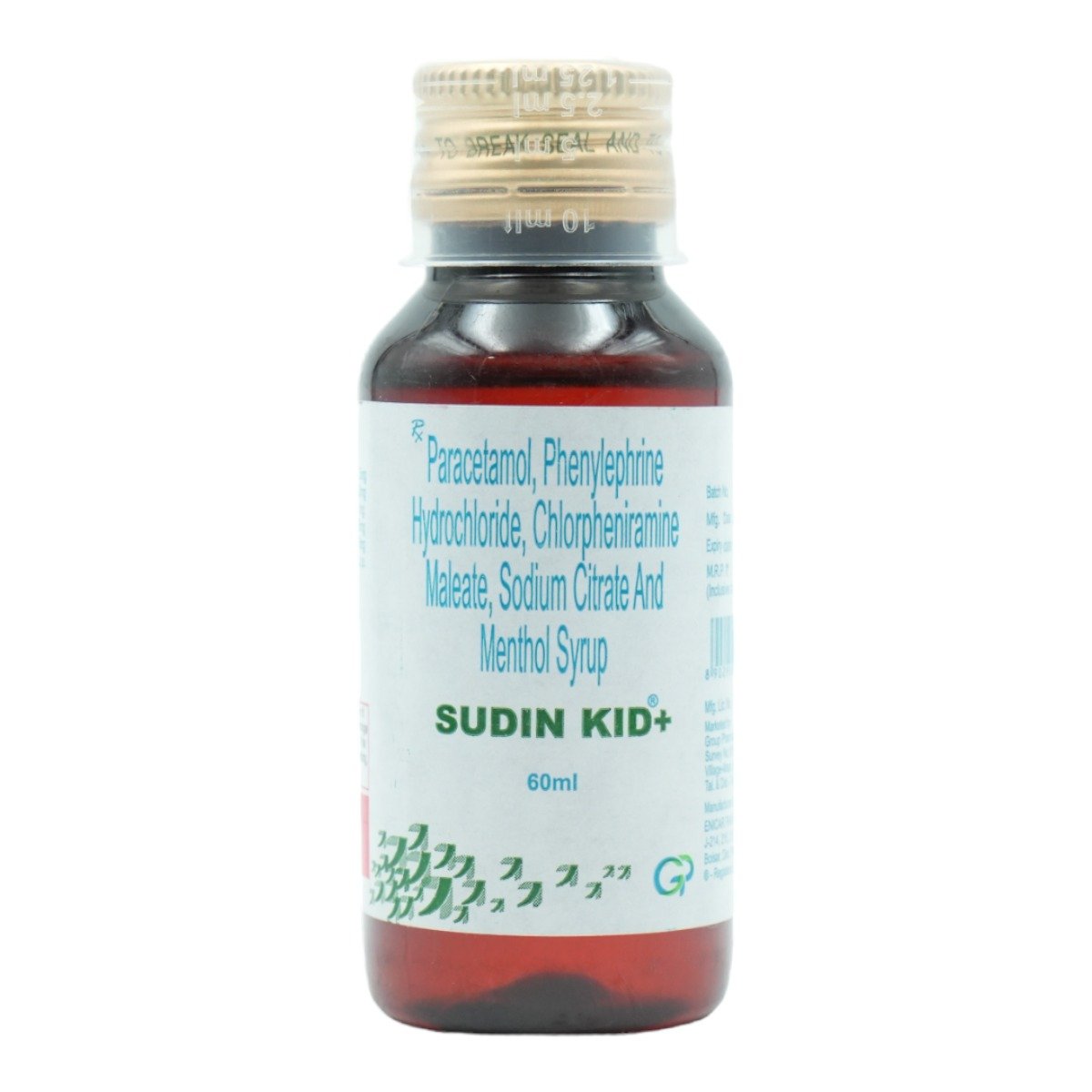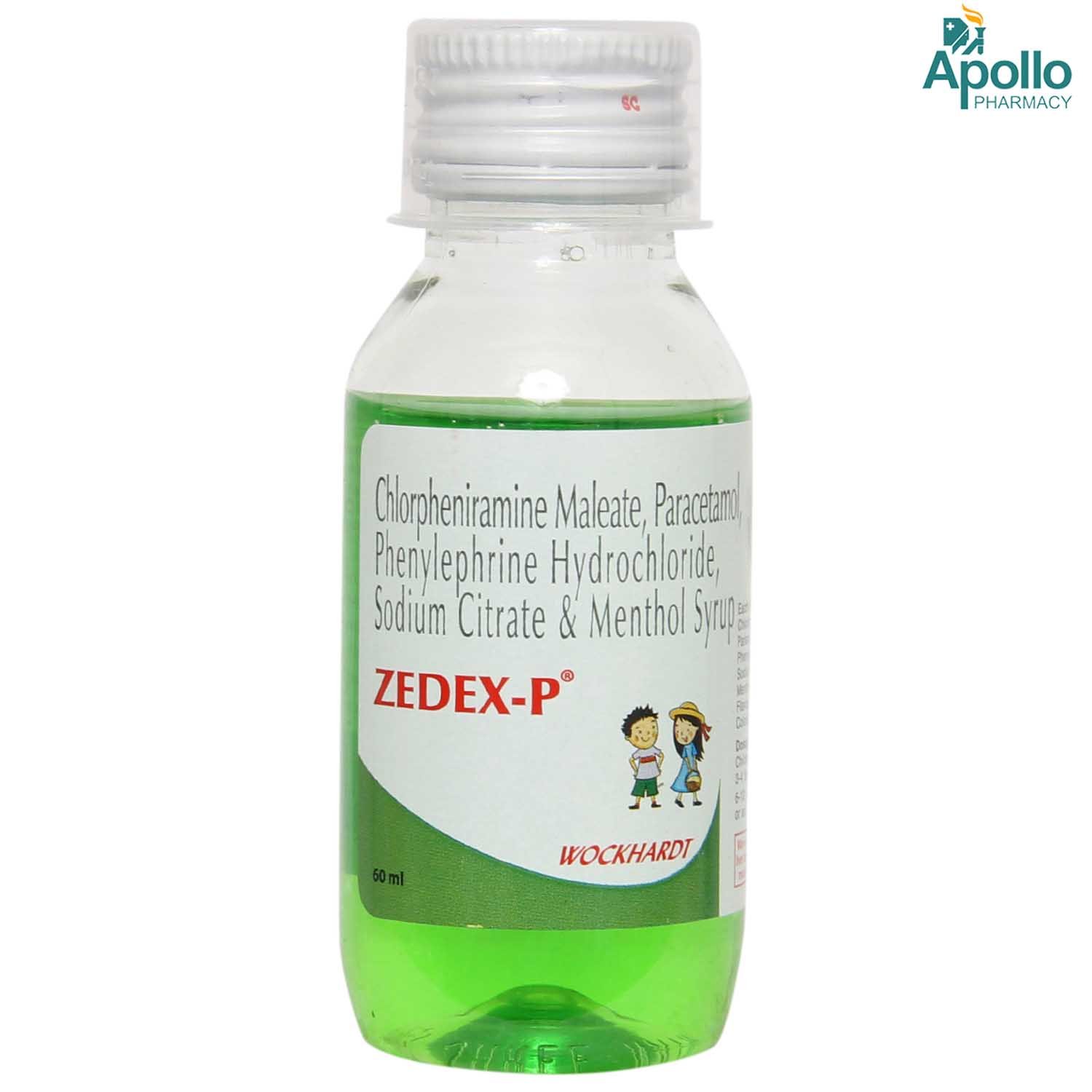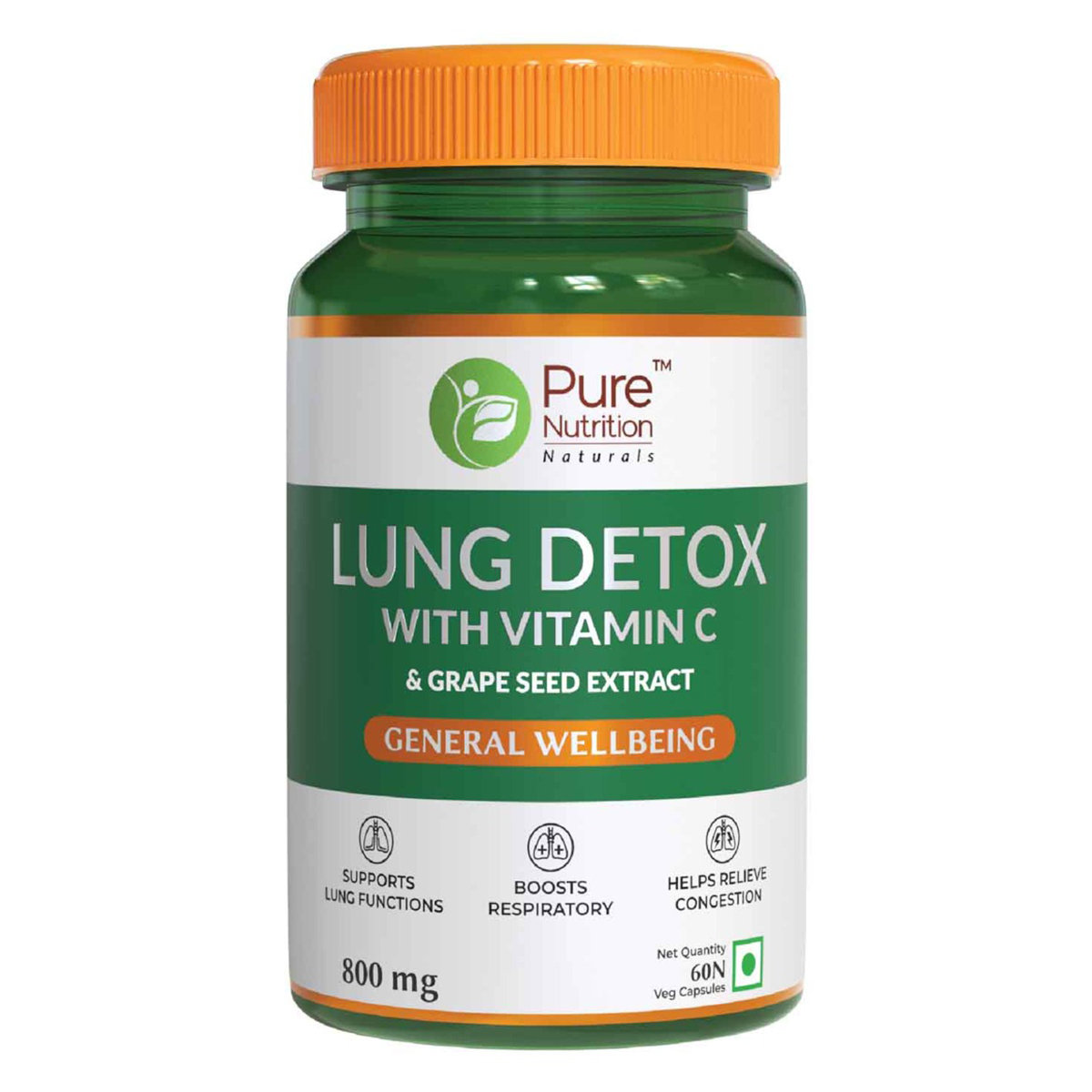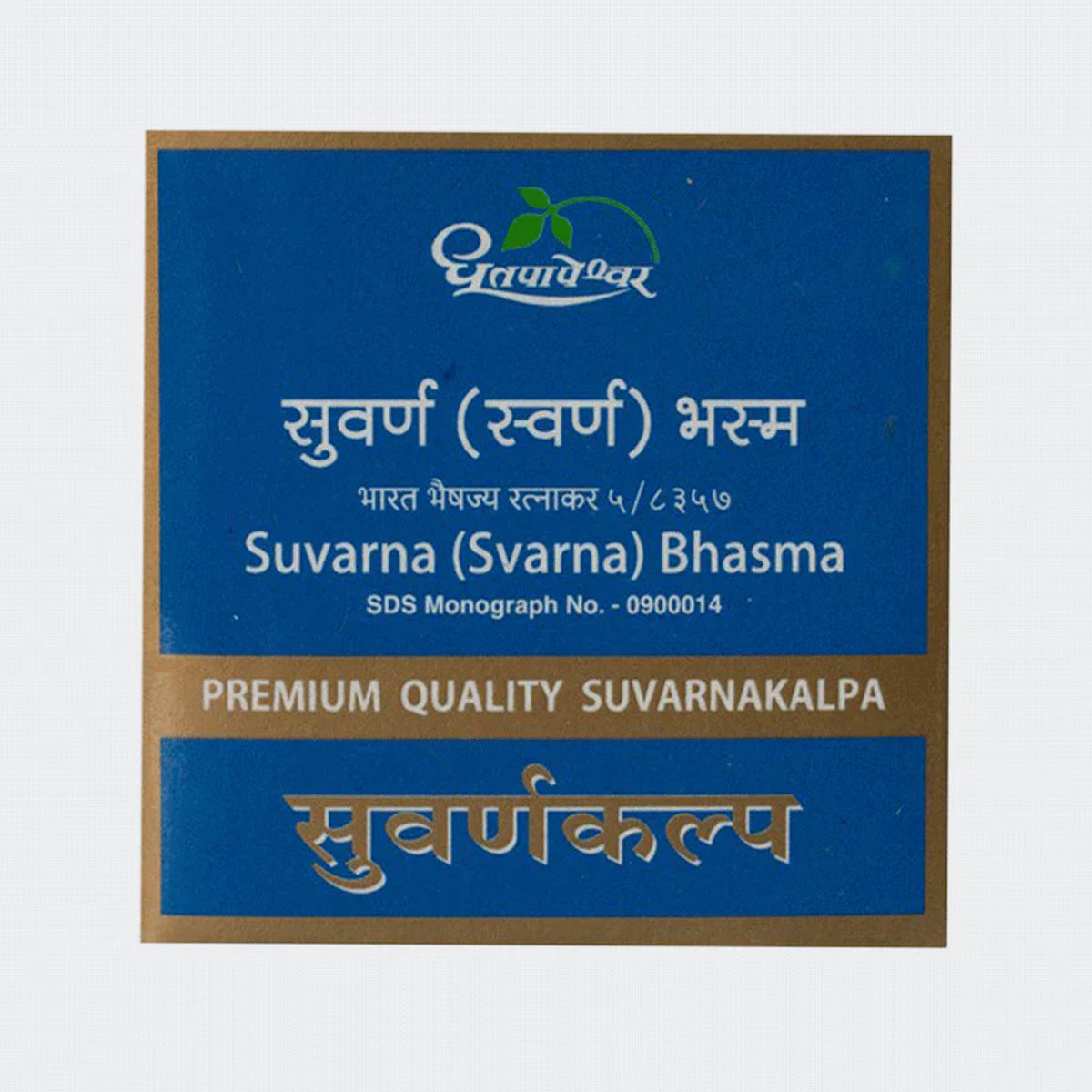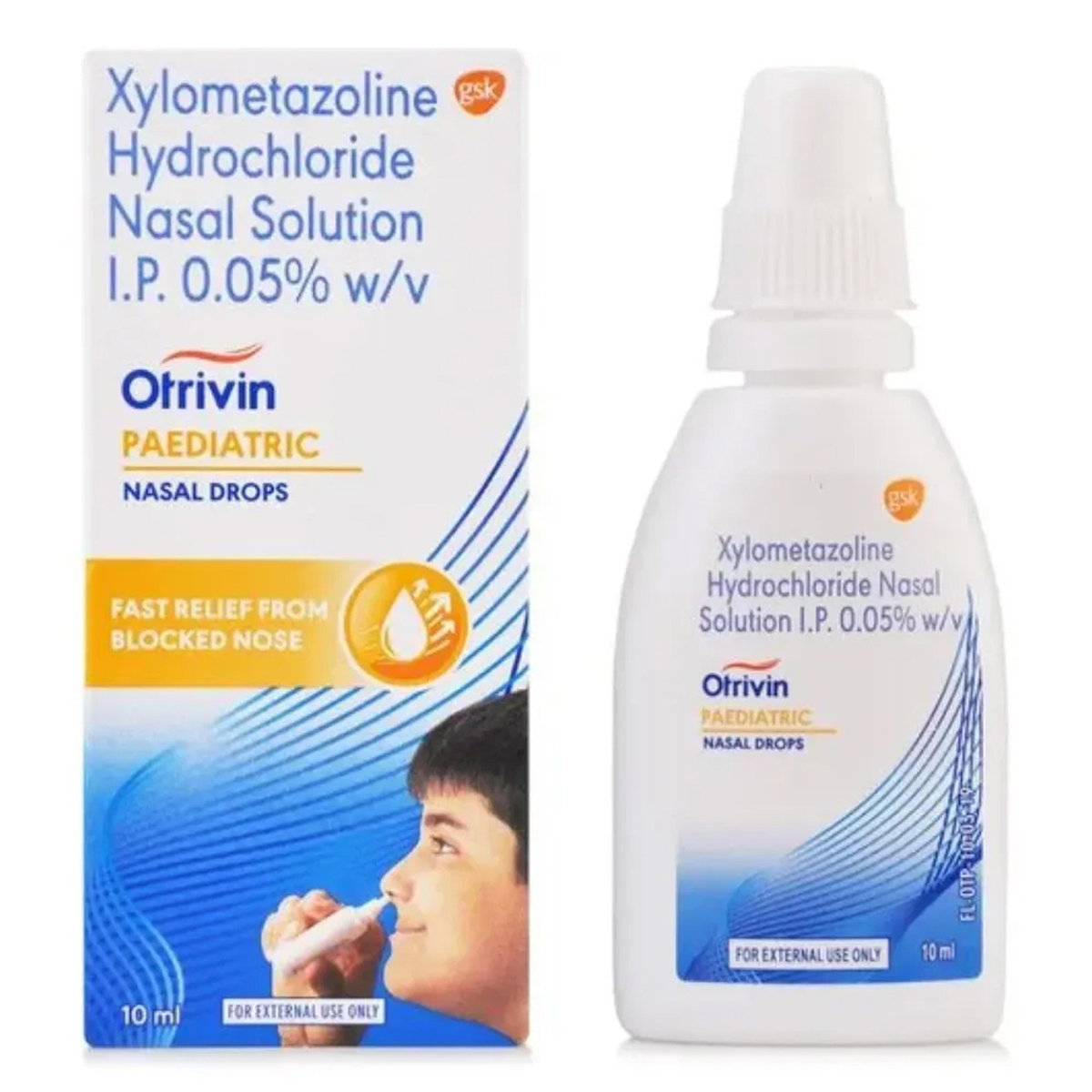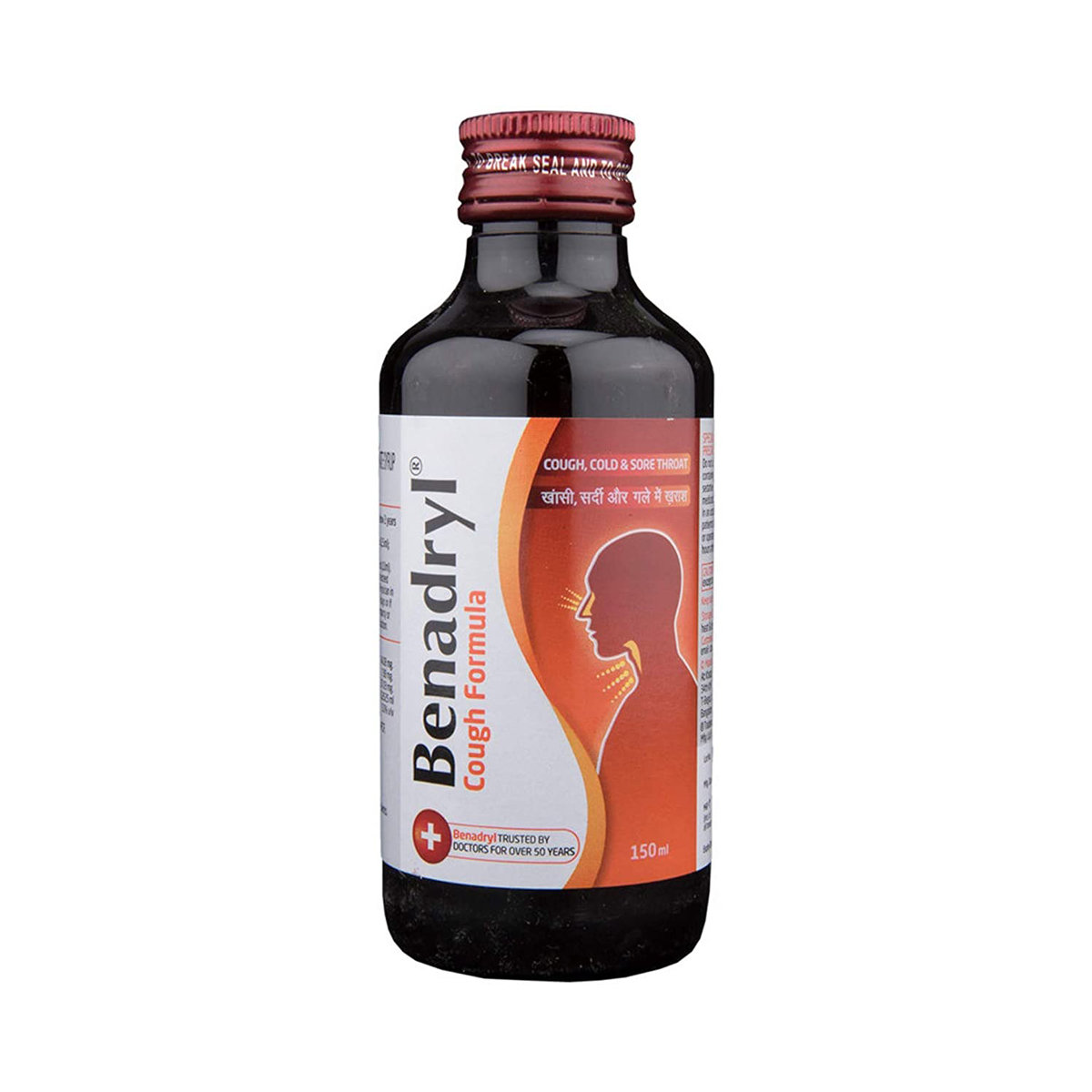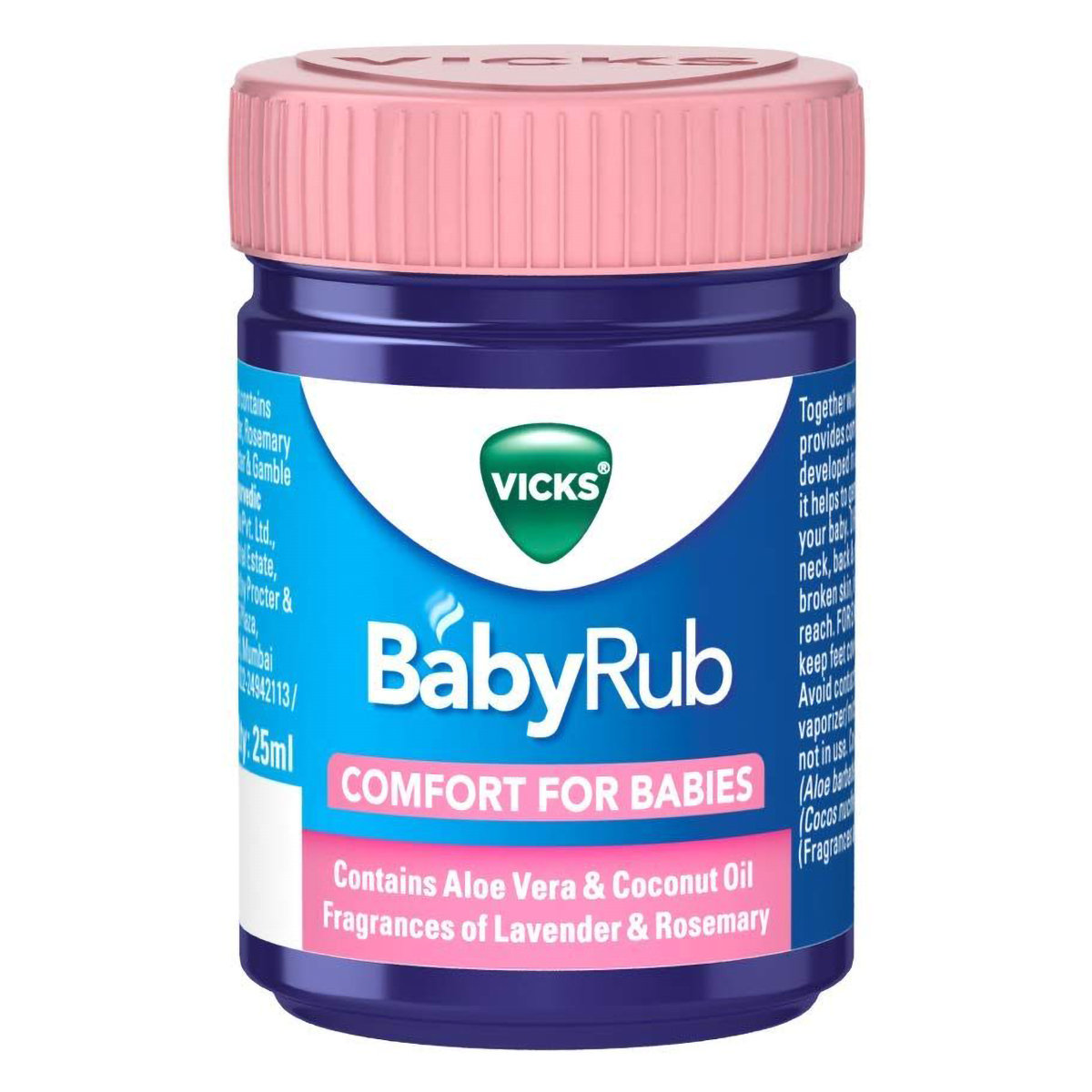Alex P Syrup
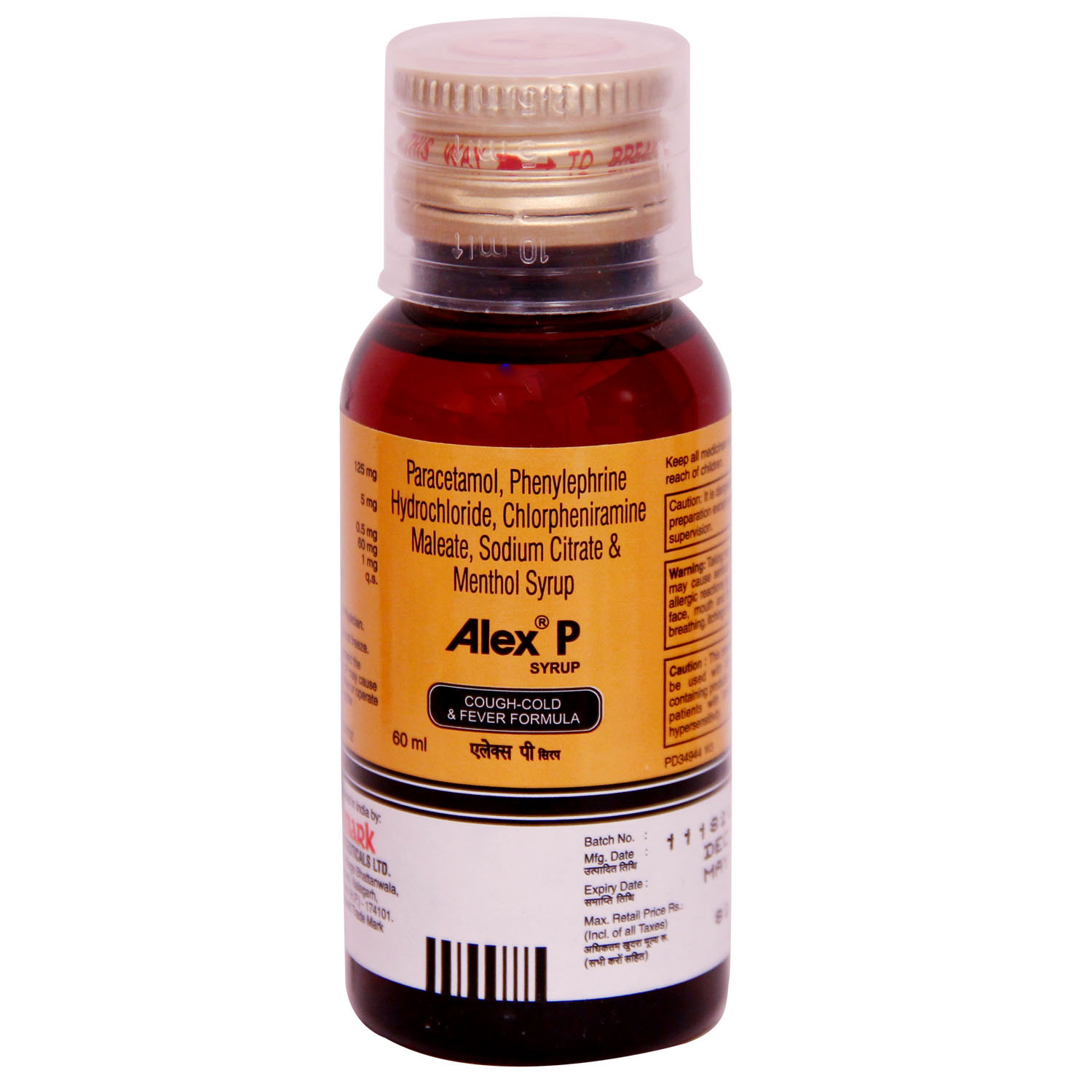
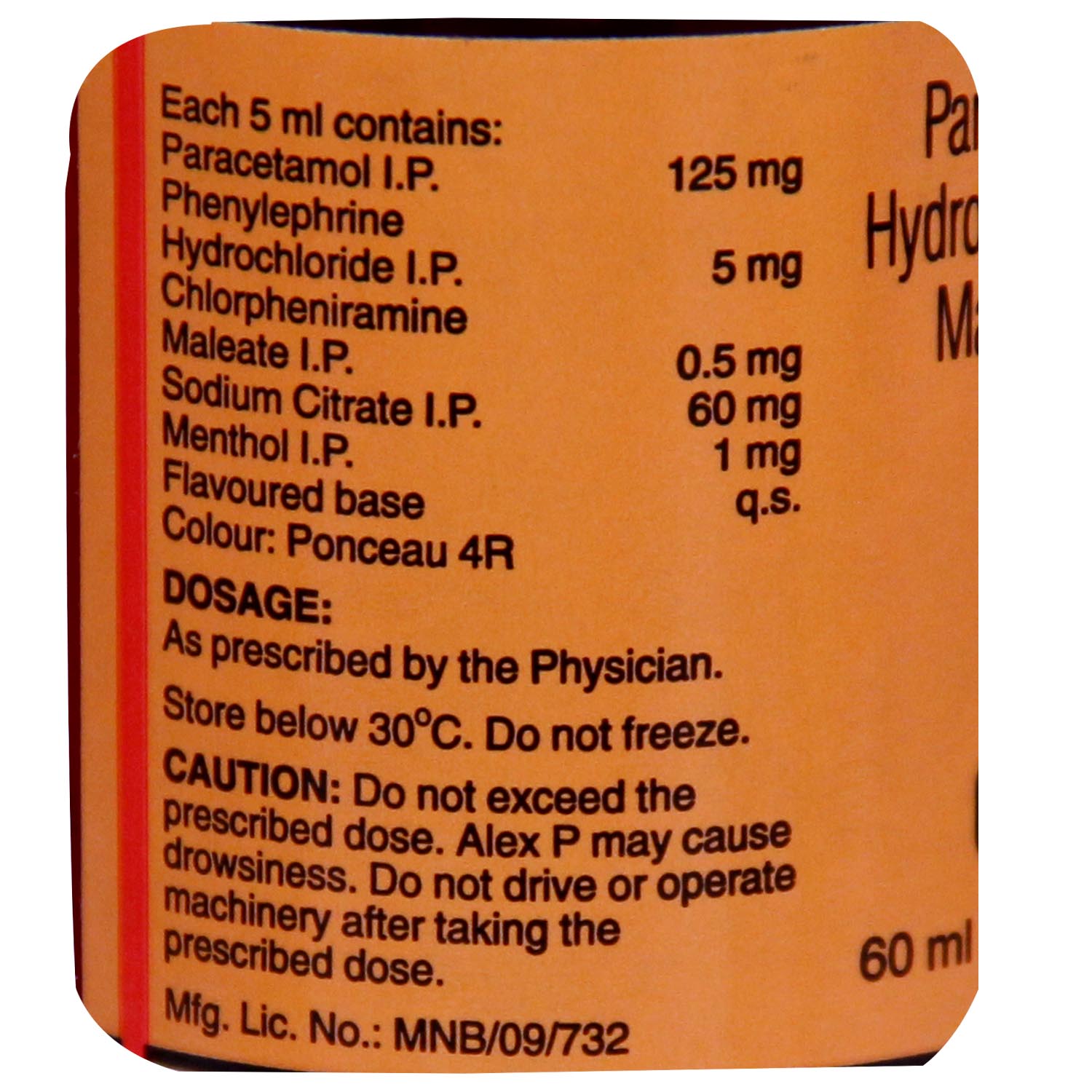
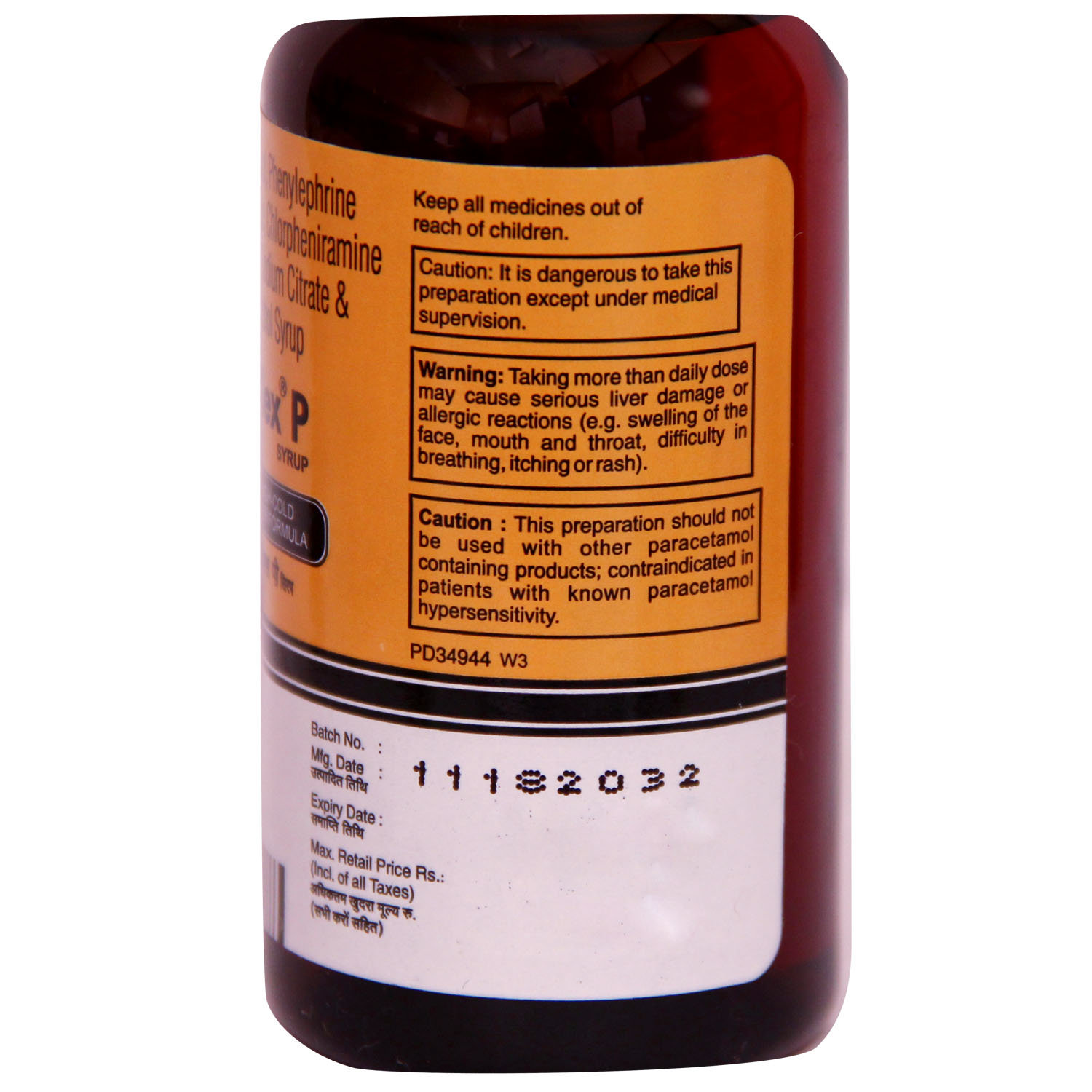
MRP ₹107.5
(Inclusive of all Taxes)
₹16.1 Cashback (15%)
know your delivery time
Provide Delivery Location
Manufacturer/Marketer :
Consume Type :
Expires on or after :
Return Policy :

Secure Payment

Trusted by 8 Crore Indians

Genuine Products
Therapeutic Class
Country of origin
Manufacturer/Marketer address
Author Details
We provide you with authentic, trustworthy and relevant information
Disclaimer
Alcohol
Safe if prescribed
Avoid consumption of alcohol with Alex P Syrup as it may cause increased drowsiness, dizziness or difficulty in concentrating. Please consult a doctor before consuming alcohol with Alex P Syrup.
Pregnancy
Consult your doctor
The safety of Alex P Syrup in pregnant women is unknown. Therefore, it is given to pregnant women only if the doctor thinks benefits outweigh risks.
Breast Feeding
Consult your doctor
Alex P Syrup may be excreted in breast milk and cause harm to the baby. Therefore, Alex P Syrup should not be used in breastfeeding mothers without doctor’s advice.
Driving
Safe if prescribed
Alex P Syrup may cause blurred vision or impair thinking in some people. Therefore, drive only if you are alert after taking Alex P Syrup.
Liver
Consult your doctor
Take Alex P Syrup with caution, especially if you have a history of Liver diseases/conditions. The dose may be adjusted by your doctor as required.
Kidney
Consult your doctor
Take Alex P Syrup with caution, especially if you have a history of Kidney diseases/conditions. The dose may be adjusted by your doctor as required.
Children
Safe if prescribed
Alex P Syrup is not recommended for children below 2 years of age, as the safety and effectiveness were not established. However, please consult a doctor before giving Alex P Syrup to children.
Product Substitutes
Reference
- https://www.drugs.com/mtm/acetaminophen-chlorpheniramine-and-phenylephrine.html#:~:text=Acetaminophen%20is%20a%20pain%20reliever,vessels%20in%20the%20nasal%20passages.
- https://www.researchgate.net/publication/331223133_EFFICACY_AND_SAFETY_FOR_A_COMBINATION_OF_PARACETAMOL_CHLORPHENIRAMINE_MALEATE_PHENYLEPHRINE_SODIUM_CITRATE_AND_MENTHOL_IN_THE_SYMPTOMATIC_TREATMENT_OF_COMMON_COLD_AND_ALLERGIC_RHINITIS_PHASE_IV_CLINIC
About Alex P Syrup
Alex P Syrup is used to treat symptoms of the common cold and allergies (allergic rhinitis). The common cold is a respiratory illness affecting the nose and throat. It is mostly caused by viruses known as “rhinoviruses”. The virus enters the body through the nose, mouth, or eyes and spreads easily through droplets in the air when the person who is sick sneezes, coughs, or talks. Allergies are caused due to the 'allergens' that cause 'histamine' to release in the blood, thereby causing a stuffy nose, watery eyes, itching nose/throat, etc.
Alex P Syrup is a combination of five drugs, namely: Paracetamol, Phenylephrine hydrochloride, Chlorpheniramine maleate, Sodium citrate, and menthol. Paracetamol works by inhibiting the production of certain chemical messengers in the brain known as prostaglandins that are responsible for pain and fever. Phenylephrine hydrochloride works by contracting and narrowing the blood vessels. Chlorpheniramine maleate works by blocking the action of histamine, a substance responsible for causing allergic reactions. Sodium citrate works by thinning and loosening phlegm (mucus) in the lungs, windpipe, and nose. Menthol relieves minor irritation in the throat and provides a cooling sensation.
Take Alex P Syrup as advised by your doctor. Some people may experience drowsiness, nervousness, mild headache, dizziness, insomnia (difficulty in falling or staying asleep), blurred vision, nausea, vomiting, constipation, and dry mouth. Most of these side effects of Alex P Syrup do not require medical attention and gradually resolve over time. However, if the side effects persist or worsen, please consult your doctor.
If you are allergic to Alex P Syrup or any other medicines, please tell your doctor. If you are pregnant or breastfeeding, it is advised to inform your doctor before taking Alex P Syrup. Alex P Syrup is not recommended for children below 2 years of age. Please do not take more than the prescribed dose of Alex P Syrup as it may cause liver damage and severe adverse effects. If you have high blood pressure, diabetes, glaucoma, hyperthyroidism (overactive thyroid), chronic bronchitis, asthma, chronic obstructive pulmonary disease (COPD), blockage in the stomach or intestines, enlarged prostate gland, pheochromocytoma (tumour in the adrenal glands), kidney, liver, heart or urinary problems, inform your doctor before taking Alex P Syrup.
Uses of Alex P Syrup
Medicinal Benefits Mweb
Key Benefits
Alex P Syrup contains Paracetamol, Phenylephrine hydrochloride, Chlorpheniramine maleate, Sodium citrate, and menthol used to treat symptoms of the common cold and allergies. Paracetamol is an analgesic (relieves pain) and antipyretic (reduces fever) that works by inhibiting the production of certain chemical messengers in the brain known as prostaglandins that are responsible for pain and fever. Phenylephrine hydrochloride is a decongestant that works by contracting and narrowing the blood vessels. Thereby, providing relief from congestion and decreasing mucus production. Chlorpheniramine maleate is an anti-allergic drug that blocks the action of histamine, a substance responsible for causing allergic reactions. Sodium citrate is a mucolytic agent (cough/sputum thinner) that works by thinning and loosening phlegm (mucus) in the lungs, windpipe, and nose. Thereby, helps to cough out easily. Menthol is a cooling agent that relieves minor irritation in the throat and provides a cooling sensation. Together Alex P Syrup helps relieve symptoms of a common cold like headache, fever, and allergies like stuffy nose, watery eyes, itching nose/throat, etc.
Directions for Use
Side Effects of Alex P Syrup
- Drowsiness
- Nervousness
- Mild headache
- Dizziness
- Insomnia (difficulty in falling or staying asleep)
- Blurred vision
- Nausea
- Vomiting
- Constipation
- Dry mouth
Drug Warnings
If you are allergic to Alex P Syrup or any other medicines, please tell your doctor. If you are pregnant or breastfeeding, it is advised to inform your doctor before taking Alex P Syrup. Alex P Syrup is not recommended for children below 2 years of age. Please do not take more than the prescribed dose of Alex P Syrup as it may cause liver damage and severe adverse effects. Avoid using Alex P Syrup if you have taken medicines such as linezolid, phenelzine, selegiline, rasagiline, isocarboxazid, tranylcypromine, and methylene blue injection in the past 14 days. If you have high blood pressure, diabetes, glaucoma, hyperthyroidism (overactive thyroid), chronic bronchitis, asthma, chronic obstructive pulmonary disease (COPD), blockage in the stomach or intestines, enlarged prostate gland, pheochromocytoma (tumour in the adrenal glands), kidney, liver, heart or urinary problems, inform your doctor before taking Alex P Syrup.
Drug-Drug Interactions
Drug-Drug Interactions
Login/Sign Up
Taking Alex P Syrup 60 ml with Propofol may lead to increased levels of Alex P Syrup 60 ml leading to side effects like high blood pressure.
How to manage the interaction:
Taking Alex P Syrup 60 ml with Propofol is not recommended, but it can be taken if prescribed by the doctor. Do not discontinue the medications without consulting a doctor.
Taking Furazolidone with Alex P Syrup 60 ml can cause an increase in high blood pressure.
How to manage the interaction:
Taking Furazolidone with Alex P Syrup 60 ml is not recommended, it can be taken if prescribed by the doctor. However, if you experience sudden and severe headache, blurred vision, confusion, seizures, chest pain, nausea or vomiting, sweating, lightheadedness, fainting, sudden numbness or weakness (especially on one side of the body), speech difficulties, fever, consult the doctor immediately. It is advised to use Alex P Syrup 60 ml only after 14 days of stopping Furazolidone.
Co-administration of Alex P Syrup 60 ml with Sevoflurane can increase the levels of Alex P Syrup 60 ml and lead to side effects.
How to manage the interaction:
Taking Alex P Syrup 60 ml with Sevoflurane is not recommended, it can be taken if prescribed by the doctor. Do not discontinue the medications without consulting a doctor.
Taking Tranylcypromine with Alex P Syrup 60 ml can increase the risk of high blood pressure.
How to manage the interaction:
Taking Tranylcypromine with Alex P Syrup 60 ml is not recommended, but can be taken together if prescribed by a doctor. However, consult a doctor if you experience severe headache, blurred vision, confusion, seizures, chest pain, nausea or vomiting, sudden numbness or weakness (especially on one side of the body), speech difficulties, fever, sweating, lightheadedness, and fainting Do not discontinue any medications without consulting a doctor.
Co-administration of Selegiline with Alex P Syrup 60 ml together can raise blood pressure.
How to manage the interaction:
Taking Selegiline with Alex P Syrup 60 ml is not recommended, it can be taken together if prescribed by a doctor. However, consult a doctor immediately if you experience any symptoms such as severe headache, blurred vision, confusion, fits, chest pain, nausea or vomiting, sudden numbness or weakness (especially on one side of the body), speech difficulties, fever, sweating, lightheadedness, and/or fainting Do not discontinue any medications without consulting a doctor.
Taking Alex P Syrup 60 ml and Potassium citrate (in tablet or capsule form) together can increase the risk of stomach ulcers, bleeding, and gastrointestinal injury.
How to manage the interaction:
Taking Alex P Syrup 60 ml with Potassium citrate is not recommended as it can lead to an interaction, it can be taken if prescribed by the doctor. However, if you experience any symptoms such as severe stomach pain, bloating, lightheadedness or dizziness, nausea, vomiting (especially with blood), decreased hunger, or dark, tarry stools, consult the doctor immediately. Do not discontinue any medications without a doctor's advice.
Taking Alex P Syrup 60 ml and Potassium chloride (in tablet or capsule form) together can increase the risk of stomach ulcers, bleeding, and gastrointestinal injury.
How to manage the interaction:
Taking Alex P Syrup 60 ml with Potassium chloride it not recommended as it can lead to an interaction, it can be taken if your doctor has prescribed it. However, if you experience any symptoms such as severe stomach pain, bloating, lightheadedness or dizziness, nausea, vomiting (especially with blood), decreased hunger, or dark, tarry stools, consult the doctor. Do not discontinue any medications without a doctor's advice.
Co-administration of Topiramate can cause increased body temperature and decreased sweating, and these effects may be worsened when combined with medications like Alex P Syrup 60 ml.
How to manage the interaction:
Although there is a possible interaction between Alex P Syrup 60 ml and Topiramate, you can take these medicines together if prescribed by your doctor. However, if you experience any unusual symptoms, consult the doctor. Do not discontinue any medications without consulting a doctor.
Co-administration of Alex P Syrup 60 ml with Halothane may increase the risk of an irregular heart rhythm.
How to manage the interaction:
Although taking Alex P Syrup 60 ml with Halothane together can result in an interaction, it can be taken if a doctor has prescribed it. However, if you experience any symptoms like lightheadedness, fainting, irregular heart beat, dizziness, consult the doctor. Do not discontinue any medications without a doctor's advice.
Co-administration of Nortriptyline with Alex P Syrup 60 ml may lead to side effects like increased blood pressure.
How to manage the interaction:
Although taking Nortriptyline and Alex P Syrup 60 ml together can result in an interaction, it can be taken if a doctor has prescribed it. Regular monitoring of blood pressure is advised. Do not discontinue any medications without a doctor's advice.
Drug-Food Interactions
Drug-Food Interactions
Login/Sign Up
Drug-Diseases Interactions
Drug-Diseases Interactions
Login/Sign Up
Drug-Drug Interactions Checker List
- DIPHENHYDRAMINE
- CETIRIZINE
- DULOXETINE
- ESCITALOPRAM
- CLONAZEPAM
- ALPRAZOLAM
- CYCLOBENZAPRINE
- DEXTROMETHORPHAN
- ALBUTEROL
- RAMELTEON
- PARACETAMOL
- IBUPROFEN
Habit Forming
Special Advise
- Do not give Alex P Syrup to children below 2 years of age.
- Do not take Alex P Syrup for longer than 7 days in a row (for adults) unless advised by the doctor.
Diet & Lifestyle Advise
- Wash your hands with soap and water regularly to prevent the spread of germs.
- Eat plenty of foods rich in good bacteria like yoghurt to improve overall health.
- Drink plenty of fluids to avoid dehydration.
- Gargle with salt water for relief from sore throat.
- Avoid consumption of alcohol with Alex P Syrup as it may cause tiredness, drowsiness, or lack of concentration.
All Substitutes & Brand Comparisons
RX
Sudin Kid Plus Syrup 60 ml
Group Pharmaceuticals Ltd
₹65.5
(₹0.98/ 1ml)
39% CHEAPERRX
Zedex P Cough Syrup 60 ml
Wockhardt Ltd
₹112.5
(₹1.69/ 1ml)
4% COSTLIER

Have a query?
Buy best Respiratory System products by
Cipla Ltd
Lupin Ltd
Glenmark Pharmaceuticals Ltd
Sun Pharmaceutical Industries Ltd
Alkem Laboratories Ltd
Macleods Pharmaceuticals Ltd
Mankind Pharma Pvt Ltd
Zydus Healthcare Ltd
Leeford Healthcare Ltd
Dr Reddy's Laboratories Ltd
Zydus Cadila
Abbott India Ltd
Intas Pharmaceuticals Ltd
Alembic Pharmaceuticals Ltd
German Remedies Ltd
Centaur Pharmaceuticals Pvt Ltd
Ipca Laboratories Ltd
Aristo Pharmaceuticals Pvt Ltd
Pristine Pearl Pharma Pvt Ltd
Wockhardt Ltd
GlaxoSmithKline Pharmaceuticals Ltd
Zuventus Healthcare Ltd
Koye Pharmaceuticals Pvt Ltd
Micro Labs Ltd
Blue Cross Laboratories Pvt Ltd
Medishri Healthcare Pvt Ltd
Med Manor Organics Pvt Ltd
Indiabulls Pharmaceuticals Pvt Ltd
Adonis Laboratories Pvt Ltd
FDC Ltd
Fourrts India Laboratories Pvt Ltd
Tablets India Ltd
J B Chemicals & Pharmaceuticals Ltd
Shreya Life Sciences Pvt Ltd
Divine Savior Pvt Ltd
Indoco Remedies Ltd
Seagull Pharmaceutical Pvt Ltd
Yash Pharma Laboratories Pvt Ltd
Torque Pharmaceuticals Pvt Ltd
Uniza Healthcare Llp
Wings Pharmacuticals Pvt Ltd
Biological E Ltd
Corona Remedies Pvt Ltd
Icarus Health Care Pvt Ltd
Steris Healthcare
Apex Laboratories Pvt Ltd
Geno Pharmaceuticals Pvt Ltd
Navil Laboratories Pvt Ltd
Precept Pharma
Aar Ess Remedies Pvt Ltd
La Renon Healthcare Pvt Ltd
Torrent Pharmaceuticals Ltd
Astra Zeneca Pharma India Ltd
Biochem Pharmaceutical Industries Ltd
Comed Chemicals Ltd
Entod Pharmaceuticals Ltd
Franco Indian Pharmaceuticals Pvt Ltd
Healthgate Pvt Ltd
Intra Life Pvt Ltd
Megma Healthcare Pvt Ltd
Pfizer Ltd
RPG Life Sciences Ltd
Unipark Biotech Pvt Ltd
Votary Laboratories (India) Ltd
Wanbury Ltd
Brinton Pharmaceuticals Ltd
Dolvis Bio Pharma Pvt Ltd
Eisen Pharmaceutical Co Pvt Ltd
Group Pharmaceuticals Ltd
Knoll Pharmaceuticals Ltd
Morepen Laboratories Ltd
Panacea Biotec Ltd
Prevego Healthcare & Research Pvt Ltd
Rnd Laboratories Pvt Ltd
Sanatra Healthcare Ltd
Skn Organics Pvt Ltd
Stedman Pharmaceuticals Pvt Ltd
Thuyam Life Pvt Ltd
Timon Pharmaceuticals Pvt Ltd
Aglowmed Pharmaceuticals Ltd
Ajanta Pharma Ltd
Alniche Life Sciences Pvt Ltd
Bio Warriors Pharmaceucticals Pvt Ltd
Biochemix Health Care Pvt Ltd
Cadila Healthcare Ltd
Cadila Pharmaceuticals Ltd
Caplet India Pvt Ltd
Chemo Healthcare Pvt Ltd
Delcure Life Sciences Ltd
East West Pharma India Pvt Ltd
Elder Pharmaceuticals Ltd
Embiotic Laboratories (P) Ltd
Emcee Pharmaceuticals (P) Ltd
Foregen Healthcare Ltd
Hetero Healthcare Pvt Ltd
Incite Pharmaceuticals
Iva Healthcare Pvt Ltd
Kepler Healthcare Pvt Ltd
Kristal Pharmaceuticals
Lincoln Pharmaceuticals Ltd
Frequently Bought Together
Customers Also Bought


_0.jpg?tr=q-85)
